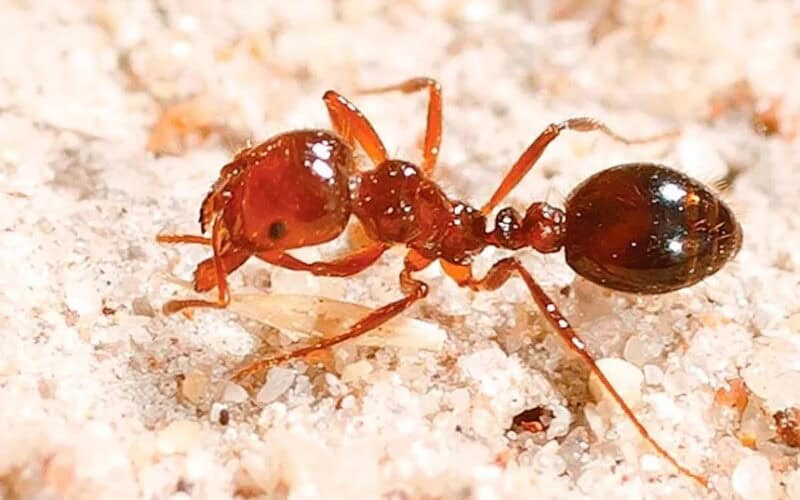Why They’re a Problem and How to Manage Them
If you’ve ever been stung by a fire ant, you know it’s an experience you won’t soon forget. These tiny pests, with their fiery bite and aggressive behaviour, can turn a pleasant day outdoors into an itchy and painful ordeal. At A.M.G Pest Management, we frequently encounter fire ant infestations and understand the challenges they present. Here’s what you need to know about fire ants and how to manage them effectively.
What Are Fire Ants?
Fire ants are small, reddish-brown ants known for their aggressive nature and painful stings. Native to South America, they have spread rapidly across most parts of South East Queensland, causing issues in both urban and rural areas. These ants are particularly problematic because of their ability to form large colonies, which can number in the hundreds of thousands. When their nest is disturbed, they can swarm aggressively, stinging multiple times and injecting venom that causes a burning sensation and can lead to severe allergic reactions in some individuals.
Why Are Fire Ants a Problem?
Fire ants pose several issues beyond their painful stings. Their aggressive behaviour makes outdoor activities hazardous, and their stings can cause significant discomfort and allergic reactions. Moreover, fire ants can damage landscaping, ruin electrical equipment and even impact livestock health. Their nests can undermine soil, potentially causing structural damage to buildings and creating hazards in areas like playgrounds and sports fields.
How to Manage Fire Ant Infestations
Effectively managing fire ants requires a multi-faceted approach:
1. Identification and Monitoring:
The first step in controlling fire ants is accurately identifying their presence. Look for their characteristic mounds, which are often reddish and can be up to 18 inches in diameter. Regular monitoring of your property can help you catch infestations early.
2. Treating the Mounds:
There are several treatment options available, including baits, granular treatments and liquid insecticides. Fire ant baits are particularly effective because they are carried back to the nest by worker ants, allowing the poison to spread throughout the colony. Granular treatments and liquid insecticides can be used to target the nests directly. We recommend you always use a licensed pest control company to carry out fire ant treatments.
3. Professional Help:
For severe infestations or if you’re unsure about which treatment to use, seeking professional pest control services is recommended. Pest control experts have access to advanced treatments and can devise a comprehensive plan tailored to your specific situation.
4. Preventative Measures:
To prevent future infestations, keep your property well-maintained and remove potential food sources. Regularly inspect your garden and surrounding areas and address any new mounds promptly.
Fire ants may be small, but their impact can be significant. By understanding their behaviour and implementing effective control strategies, you can manage and reduce their presence on your property. If you’re dealing with a fire ant problem and need expert assistance, don’t hesitate to reach out. Our team is here to help ensure your home and garden remain safe and comfortable. For an obligation free quote visit www.amgpest.com.au


0 Comments